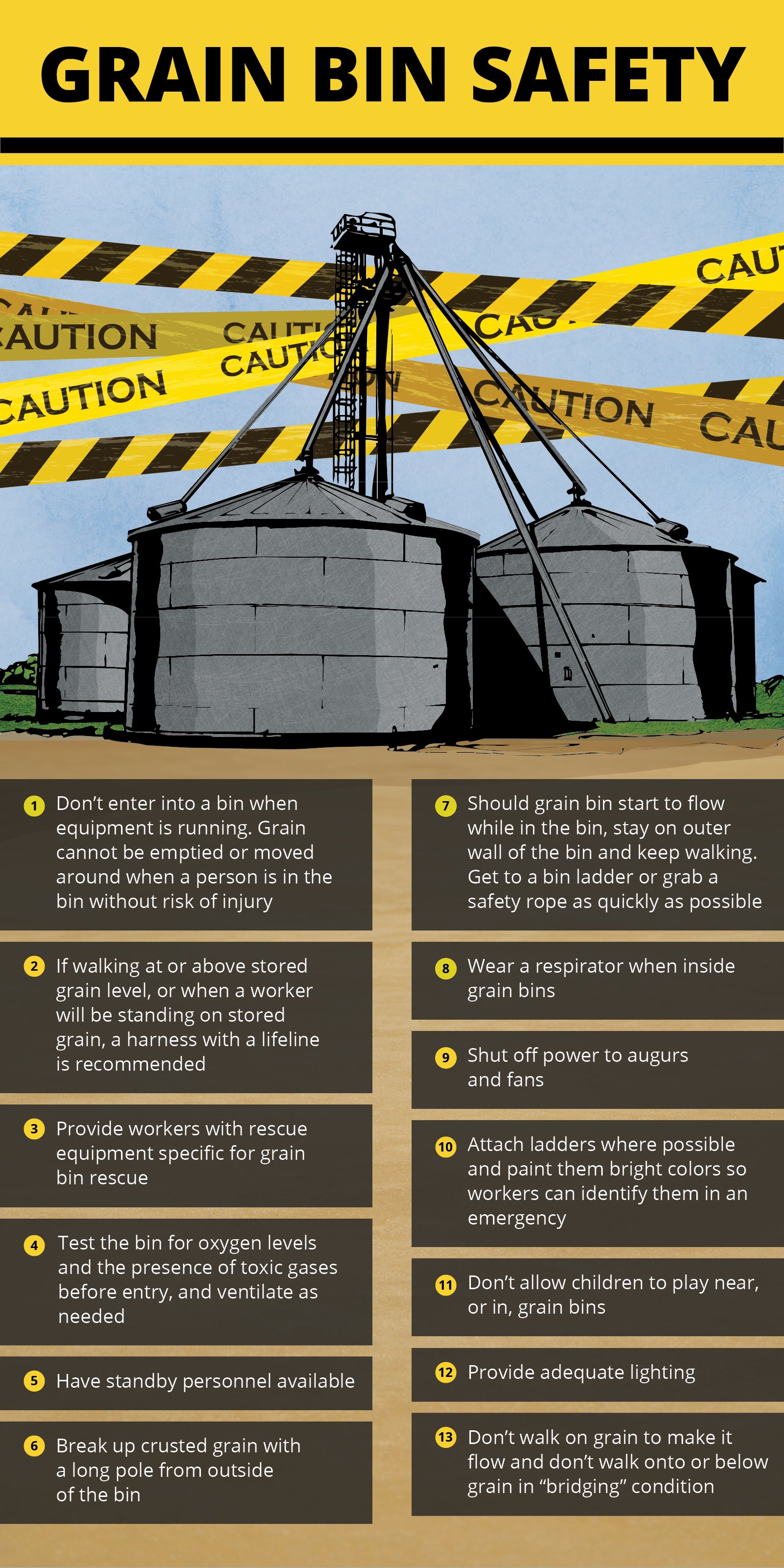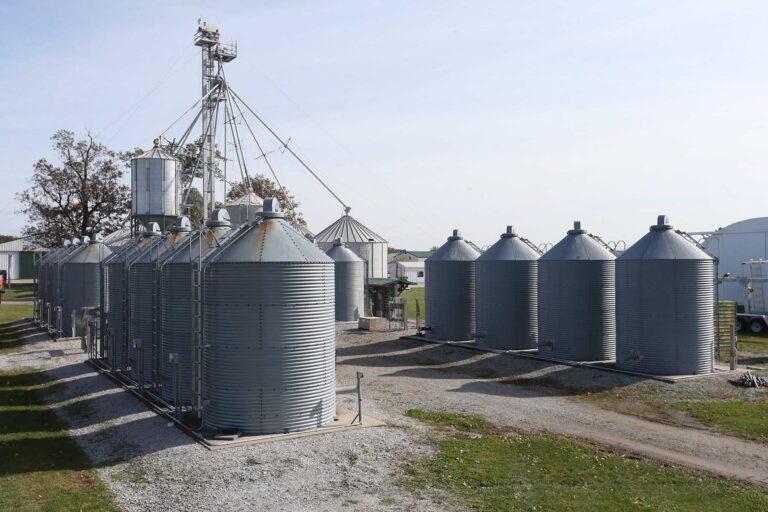With National Farm Safety and Health Week in full swing, Purdue University’s Agricultural Safety and Health Program has released the 2023 Summary of U.S. Agricultural Confined Space-related Injuries and Fatalities. The purpose of the report is to maintain public focus on the issue of agricultural confined-space injuries and fatalities, aid in the development of evidence-based training, and offer resources and direction to policymakers and engineering organizations in developing improved workplace regulations and design standards.
New findings reported no fewer than 55 cases involving agricultural confined spaces, with 29 fatal and 26 nonfatal cases. This represents a 33.7 percent decrease over the 83 cases documented in 2022.
Data also revealed that at least 27 grain entrapments took place in 2023, showing a 35.7 percent decrease over 2022. Of the 55 total cases, 28 were tied to livestock waste-handling facilities, entanglements, and grain dust explosions or fires. Roughly half of the identified cases this year were caused by grain entrapments.
Illinois had the highest total of confined space-related cases, 12, while Iowa had the second-most cases with five; Minnesota, Missouri, Nebraska, Pennsylvania, and Wisconsin had four cases each. Iowa had the most grain entrapment cases at five. Historically, Iowa, Indiana, Minnesota, Illinois, and Nebraska have had the most grain entrapment cases take place, respectively.
“As we move into the busy fall harvest season, farmers, farm workers and those involved in the grain industry should stay aware of the hazards of agricultural confined spaces,” said Ed Sheldon, report co-author and Purdue agricultural safety specialist. “Even though we have documented fewer cases last year, the fact remains that confined space incidents are a significant cause of fatalities and injuries in the agricultural workplace.”
Additional findings noted that three incidents involved more than one victim, two fatal cases dealt with livestock waste storage pits or lagoons, and nine grain dust explosions took place at commercial facilities resulting in 12 nonfatal injuries.
Program staff urge agricultural workers to remain diligent and follow safety protocols. Frequency and severity of the reported cases continues to be a major concern. However, the summary notes that there is better documentation of injuries and fatalities due to dedicated investment in surveillance and available data. The number of total cases this year is also less than the 5- and 10-year averages.



:max_bytes(150000):strip_icc()/1-15159babad60407fb4f33de72f6d899c.jpg)
:max_bytes(150000):strip_icc()/46495119094_d2bc74feb9_o-2000-5b4c22e8d6b94a8cbafaea4e3819967d.jpg)
:max_bytes(150000):strip_icc()/wade-boeshans-executive-vice-president-of-summit-carbon-solutions-testifies-april-22-2024-in-mandan-north-dakota-during-a-public-service-commission-hearing-photo-by-kyle-martin-for-the-north-dakota-monitor--ff7282b7c3e747d082717cc6eafeaa49.jpg)



:max_bytes(150000):strip_icc()/7020555farm_field-1342991889_Thomas_Barwick_preview-5cbe28e833e04c298f11ce1a25869c14.jpg)
:max_bytes(150000):strip_icc()/vintage20red20barn20and20farm-bb9ce25774f741e4991f184fa42bdc92.jpg)
